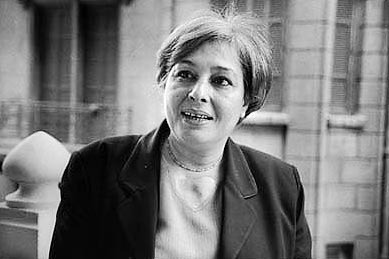A Tribute to Radwa Ashour, Heroes, and Impermanence
Two days ago, Radwa Ashour passed away. Ashour is my all-time favorite writer of Arabic literature. I discovered her through her trilogy, ثلالية غرناطة / Granada (currently only part 1 of 3 has been translated into English). I was a student in Cairo, and I chose to write my final paper (in Arabic) on this historical novel that tells the tale of a family and related characters in the Iberian Peninsula of the fifteenth century. Her treatment of the expulsion of Muslims and Jews reminded me so much of narratives of Palestinians fleeing occupation. I was neither the first nor the last to find this comparison meaningful. The comparison is important here only because she was able to tell the story in such a compelling way that it seemed to me to capture not only a narrow snapshot of history or an imaginary group of people, but also a hefty range of human experience. Her writing style included all my favorite elements of fiction: a narrative that keeps my attention; characters who maintain their own personalities, while growing with their experiences; and beautiful descriptions of nature and life. I was hooked.
Since then, I read about her studies in the United States (in الرحلة, currently available only in Arabic). Her days in 1970s Massachusetts, where she earned her PhD in African American literature, prepared her for many of her future occupations and preoccupations. She grew as a scholar, and as a student of life. She developed a strong awareness of race, ethnicity, and identity in light of the social changes that she witnessed at that time. She never lost the ability to address issues of injustice and inequality. Her novel سراج / Siraaj provides a fable-like story of a mythical island off the coast of Yemen where an African slave plantation is ruled unjustly by an Arab sultan. Her willingness to tell stories, reflect on history, and raise social issues of concern is unparalleled in Arabic literature. She has many other books, and we will be reading and reflecting on them in our Goodreads group here.
Her passing occurs at a time when many great teachers of whom I know are also nearing the end of their lives as we know them. The yogi B.K.S. Iyengar passed away several months ago. For me, he was a teacher of the ability to train the body and mind. Despite many physical challenges, he developed new methods of practicing yoga poses through the innovation of props that have since become standard. His methodology inspires me to practice yoga with precision and patience. Another personal hero who has been on my mind is the Buddhist monk, Thich Nhat Hanh, who I understand is currently hospitalized. His teachings are great reminders to me of the power of gentleness, compassion, and mindful action. Radwa Ashour has struggled with pain and discomfort recently, and she has tackled many of the problems and pleasures of humanity. She remains in my memory as a great teacher, storyteller, and communicator. And her works line my bookshelf to be revisited in the midst of my own life journey.
Links:

